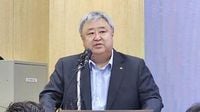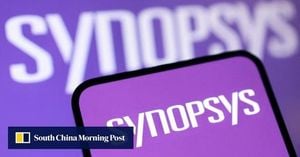On July 15, 2025, KT, one of South Korea's leading telecommunications companies, unveiled an ambitious plan to invest over 1 trillion won (approximately $800 million) in information security over the next five years, marking the largest security investment among domestic telecom operators. The announcement was made by Hwang Tae-sun, KT's Chief Information Security Officer (CISO), during the 'KT Customer Safety and Security Briefing' held in Gwanghwamun, Seoul.
This bold move comes shortly after SK Telecom revealed a 700 billion won five-year investment plan in information security earlier in July, positioning KT's commitment as significantly more extensive. KT plans to increase its annual information security budget from 125 billion won in 2024 to 200 billion won starting next year, a 60% increase, signaling a strategic pivot towards proactive and comprehensive cybersecurity measures.
Hwang emphasized the critical importance of security as a core corporate trust value, stating, "Security is a core value of corporate trust beyond technology," and underscored the company’s resolve to elevate security standards to a global top tier. He added, "We are well aware that information protection does not end with simple technology adoption and that it cannot be technically perfect. Our investment is not just a budget increase but a commitment to raise security standards beyond Korea to a global level."
KT’s five-year plan is structured around four main pillars: strengthening AI-based monitoring systems, expanding global collaboration and diagnostic consulting, completing the Zero Trust security framework, and expanding security-dedicated personnel. The company aims to establish and operate Korea’s first integrated IT and network cyber security center, leveraging its nationwide 24/7 network control infrastructure to provide continuous protection.
The proprietary 'K-Security Framework' will serve as the backbone of KT’s security architecture. This framework consists of two components: 'K-Offense,' which performs penetration testing from an attacker’s perspective based on internal security understanding, and 'K-Defense,' an integrated technical and managerial response system addressing various attack surfaces. Through this approach, KT aims to shift from reactive defense to predictive and preventive security measures, effectively realizing "security that can block" threats before they occur.
Further reinforcing its defenses, KT plans to invest approximately 340 billion won in enhancing its Zero Trust and monitoring systems. Zero Trust, a security principle that continuously verifies users and devices while granting minimal necessary privileges, has been a focus for KT for the past two years. Hwang explained, "Our security was previously designed with the assumption of internal trust. We recognized the need for a paradigm shift to Zero Trust architecture and have been actively transitioning towards it."
KT is also dedicating about 50 billion won to double its security-dedicated workforce from 162 to over 300 professionals within five years. Despite a temporary dip in personnel due to natural attrition, the company has bolstered its team by recruiting experienced security experts in the latter half of 2024. This expansion underscores KT’s commitment to maintaining a robust human element alongside technological advancements.
Global cooperation forms another critical facet of KT’s strategy. The company plans to allocate around 20 billion won to foster partnerships with global security leaders such as Microsoft, Google, and Palo Alto Networks. These collaborations aim to integrate cutting-edge security technologies and design an AI-based future security architecture, ensuring KT remains at the forefront of cybersecurity innovation.
One of the standout initiatives is the upgrade of KT’s AI Voice Phishing Detection service to version 2.0, slated for commercial launch after receiving approval from the Personal Information Protection Commission in the second half of 2025. This enhanced system will incorporate deep voice phishing detection capabilities alongside voice recognition, a first among telecom operators. Trained on over 25,000 voice phishing audio samples in partnership with the National Forensic Service, the AI analyzes call context in real-time, issuing 'caution' or 'warning' notifications to users when suspicious activity is detected.
The current detection accuracy stands at 91.6%, already the highest among South Korean telecoms, and has been credited with preventing approximately 710 million won in criminal damage in the first half of 2025 alone. With the upgrade, KT aims to push accuracy to 95%, targeting a prevention of over 2 billion won in financial losses annually.
KT is also advancing AI-driven responses to text-based spam and malicious messaging. The company has independently developed the AI Clean Messaging System (AICMS), which uses AI-trained spam report data to detect and block malicious URLs, texts, sender numbers, and sending businesses at the source. By introducing a real-time AI keyword registration system, KT has increased daily spam blocking by over 150%, despite AI-registered keywords comprising only 5.5% of total registered keywords. These AI-registered keywords account for nearly 46% of all blocked spam, showcasing the system's efficiency.
Corporate clients benefit from KT’s 'Clean Zone' service, which protects against Distributed Denial of Service (DDoS) attacks by leveraging KT’s latest security threat database. Notably, KT maintains more than double the DDoS defense capacity at international gateway points entering Korea compared to competitors. In response to a recent surge in large-scale DDoS attacks, KT plans to double Clean Zone’s defense capacity by the end of 2025. Additionally, a monitoring dashboard will be launched by August 2025, enabling customers to view real-time DDoS attack detection information. An AI-powered proactive DDoS response system, capable of learning new threat patterns, is also slated for introduction within the year.
KT’s AI Mail Security service further bolsters defenses by analyzing email senders, content, attachments, and URLs in real-time to detect and block phishing, ransomware, and advanced persistent threats (APTs). Over the past year, this service has blocked approximately 15,000 malicious emails. In September 2025, KT plans to enhance this service by integrating AI large language models (LLM) to automatically summarize and provide risk reports, offering corporate customers an additional layer of security.
In light of recent high-profile hacking incidents affecting US telecom companies like T-Mobile and AT&T, which resulted in massive customer data breaches, KT’s proactive investment strategy reflects a global trend toward heightened cybersecurity vigilance. Hwang noted that these incidents underscored the necessity of prevention-focused security investments, stating, "Prevention is the best response." KT’s own internal security audits and joint inspections with government regulators following the SK Telecom hacking incident revealed no unusual signs or security breaches, affirming the effectiveness of their current security infrastructure.
Customer trust remains a driving force behind KT’s initiatives. Lee Hyun-seok, KT’s Customer Division Vice President, remarked, "With the current level, we can no longer maintain customer trust. KT values customer trust as its top priority and will build new standards for proactive security, moving beyond existing response methods."
As cyber threats continue to evolve in complexity and scale, KT’s comprehensive approach—combining advanced AI technologies, global partnerships, robust personnel expansion, and innovative security frameworks—positions it as a pioneer in South Korea’s telecommunications cybersecurity landscape. By investing heavily in prevention, detection, and rapid response capabilities, KT aims not only to protect its customers but also to set new benchmarks for the industry.





